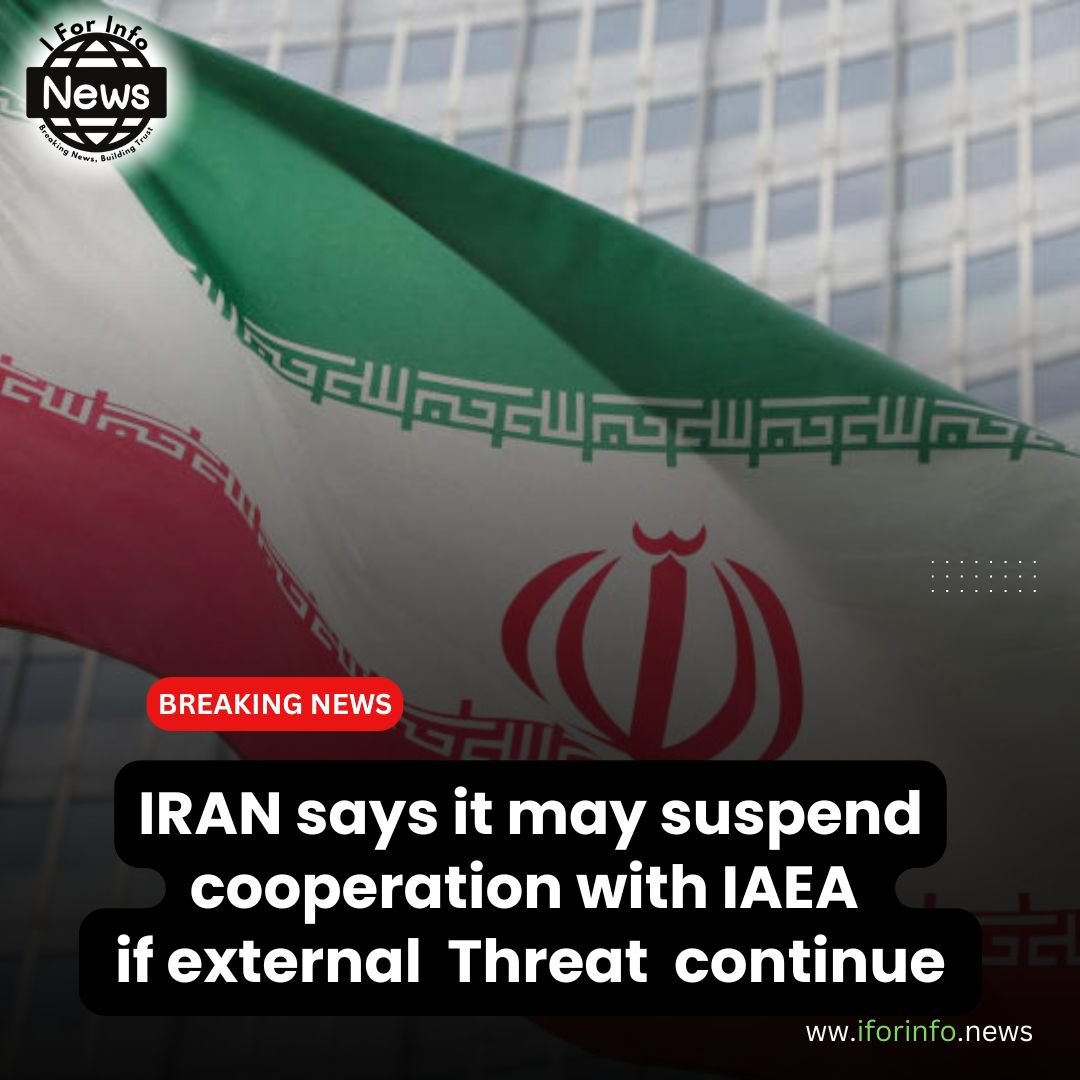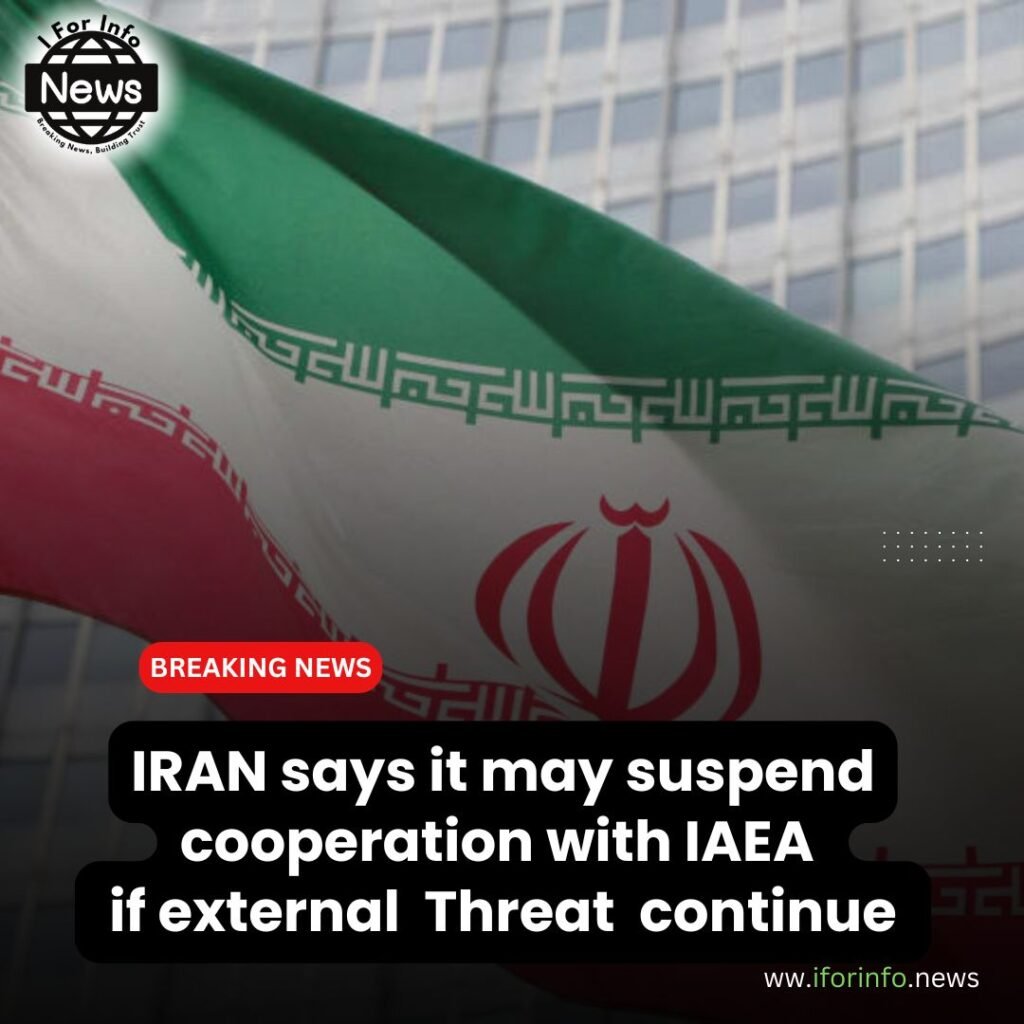Iran may halt its collaboration with the UN’s nuclear watchdog if external pressures persist, a senior adviser to the country’s supreme leader warned on Thursday. The statement comes in response to renewed threats from U.S. President Donald Trump, who once again suggested the use of military force should Tehran refuse to agree to a nuclear deal.
Iranian and U.S. diplomats are scheduled to arrive in Oman on Saturday to begin discussions on Tehran’s nuclear program. U.S. President Donald Trump has asserted he will make the final call on whether the talks succeed or break down, warning that a collapse in negotiations would place Iran in “great danger.”
Ali Shamkhani, a senior adviser to Supreme Leader Ayatollah Ali Khamenei, cautioned on X that continued external threats and the looming prospect of military action could prompt Iran to take defensive steps, such as expelling inspectors from the International Atomic Energy Agency (IAEA) and ending cooperation with the agency.
He also suggested that Iran may consider relocating its enriched uranium stockpile to secure and undisclosed sites within the country.
While the U.S. claims the upcoming discussions will involve direct engagement, Iranian officials maintain that talks will be indirect, facilitated by Oman’s foreign minister.
During his first term in office, Trump pulled the U.S. out of the 2015 nuclear agreement between Iran and world powers, which was designed to restrict Iran’s nuclear activities in return for sanctions relief. He later reimposed broad U.S. sanctions.
Since the U.S. withdrawal, Iran has exceeded the enrichment limits set by the deal, according to reports from the IAEA. Western nations allege that Iran is secretly aiming to develop nuclear weapons by enriching uranium to levels beyond what is considered necessary for peaceful energy use. Tehran insists that its nuclear ambitions are purely for civilian energy purposes.
Tensions surrounding Iran’s nuclear program escalated this week as a senior adviser to Supreme Leader Ayatollah Ali Khamenei warned that the Islamic Republic may suspend its cooperation with the International Atomic Energy Agency (IAEA) if external threats persist. The statement, made by Ali Shamkhani, comes amid rising pressure from the United States and growing speculation about the future of nuclear negotiations.
Posting on X (formerly Twitter), Shamkhani cautioned that ongoing threats of military action and international pressure could push Iran to take what he called “deterrent measures.” Among those, he mentioned the potential expulsion of IAEA inspectors and the possible halt of Iran’s cooperation with the global nuclear watchdog. He also hinted at relocating enriched uranium to secure and undisclosed facilities inside Iran.
“Continued external threats and putting Iran under the conditions of a military attack could lead to deterrent measures like the expulsion of IAEA inspectors and ceasing cooperation with it,” Shamkhani wrote. “Transferring enriched material to safe and undisclosed locations in Iran could also be on the agenda.”
The stark warning comes ahead of expected diplomatic discussions between Iranian and American representatives in Oman, where officials are set to explore pathways toward reviving dialogue over Iran’s nuclear activities. While U.S. officials have indicated they are ready for direct talks, Iranian authorities have insisted that any communication will be indirect and mediated by Oman’s foreign minister.
This latest development reflects growing uncertainty over the future of Iran’s nuclear program and the international community’s efforts to monitor it. Under the 2015 Joint Comprehensive Plan of Action (JCPOA)—an agreement between Iran and six world powers including the U.S., UK, France, Russia, China, and Germany—Iran agreed to scale back its nuclear program in return for the lifting of economic sanctions. The accord also granted the IAEA access to monitor Iran’s nuclear sites and verify compliance.
However, in 2018, former President Donald Trump unilaterally withdrew the U.S. from the deal, reimposing sweeping sanctions on Tehran. Since then, Iran has steadily expanded its nuclear activities, including enriching uranium far beyond the limits outlined in the JCPOA. According to the IAEA, Iran has now enriched uranium to levels just short of weapons-grade material.
In recent months, the U.S. has accused Iran of clandestinely seeking the capability to develop nuclear weapons—allegations Tehran continues to deny. Iranian officials maintain that the country’s nuclear program is solely for peaceful, civilian purposes such as generating electricity and medical research.
Trump, who is currently campaigning for another term in the White House, has once again issued strong warnings to Iran. In a recent statement, he said that if talks fail, Iran would be placed in “great danger,” signaling the potential for a more confrontational U.S. stance should negotiations collapse.
The threat of suspending cooperation with the IAEA is not new. Iran has previously reduced its engagement with the agency in response to sanctions or perceived violations of its sovereignty. However, a complete withdrawal of cooperation, including the expulsion of inspectors, would mark a serious escalation and could further isolate Iran diplomatically.
Analysts warn that such a move would not only hinder the global community’s ability to monitor Iran’s nuclear activities but could also accelerate a regional arms race, raising tensions in the already volatile Middle East. Israel, a vocal critic of the JCPOA and Iran’s nuclear ambitions, has repeatedly said it will not allow Tehran to develop nuclear weapons, even if it requires military intervention.
The situation has placed significant pressure on Western diplomats to strike a delicate balance—seeking to contain Iran’s nuclear advancements while avoiding actions that could provoke a complete breakdown in diplomatic channels.
As talks in Oman approach, all eyes will be on whether diplomacy can prevail or whether the increasingly tense rhetoric will give way to a more dangerous standoff. For now, Iran’s message to the international community is clear: continued external threats could come at a high cost—not just in terms of diplomacy, but also in the transparency and accountability that the IAEA aims to uphold.




